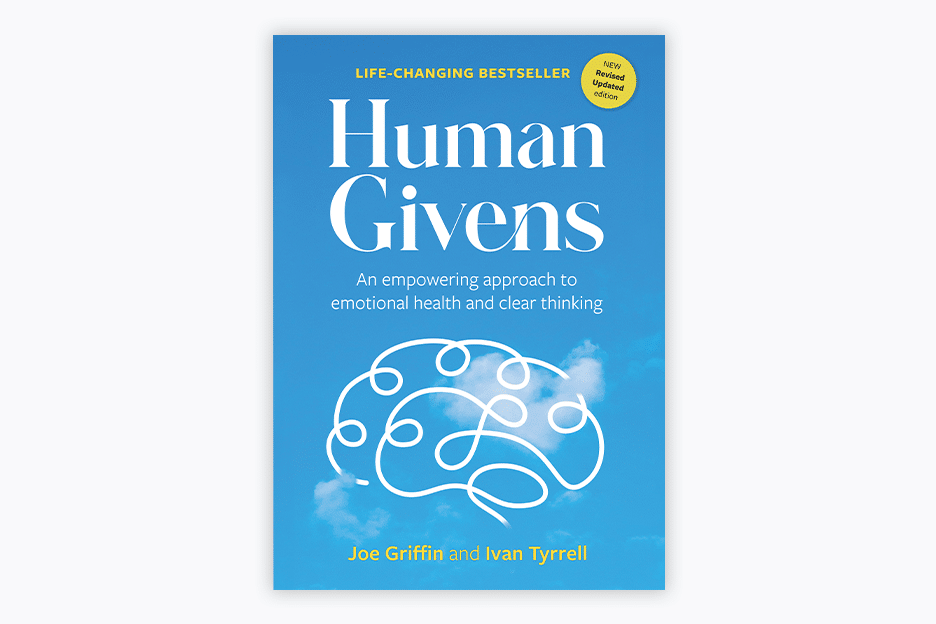Moral Injury new
and its relationship to trauma and mental health
Keep your knowledge up to date with this live online training – we take an indepth look at what is meant by ‘moral injury’, how to identify whether moral injury is the cause of someone’s distress, practical ways to help someone who is affected by it – and much more…
Course Factfile
Moral Injury Online Course
-
NEW COURSE
-
CPD Certificate: 6 hours
-
Tutor: Ros Townsend
-
Length: 1 day (9.15am–4.00pm BST)
Special offer
- Price: £145 £135 per person
Includes course notes and access to a recording of the event
Original price was: £145.00.£135.00Current price is: £135.00.
Book your place
Select a date
BOOK EARLY – Limited to 24 places

Live Online Training – next available date: Thurs 1st May. Join Ros Townsend live online via Zoom for this illuminating training day – once booked you’ll immediately receive email confirmation and then you’ll receive the Zoom link the day before the event. What you will learn >
BONUS RECORDING – the training is recorded so you will also get a recording for a limited time afterwards to maximise your learning.
Can’t make this date? Register your interest below
Why take this course
Moral Injury is a very real cause of psychological distress often characterised by feelings of grief, shame, guilt, disgust, contempt, anger and a sense of betrayal, which can lead to depression, substance misuse, even suicide.
Originally identified in veterans and others affected by war, moral injury occurs in response to having had to act in a way, or having witnessed behaviours, which go against an individual’s values and moral beliefs. Left unresolved it can lead to a cycle of negative behaviours and decisions. Successfully addressing these feelings can prevent further harm, including to those around them, and lead to improved mental health so that they can lead fulfilling lives and maintain healthy relationships once more.
If your work involves supporting distressed individuals, it’s important to have a clear understanding of moral injury and how to identify it, and to keep yourself up-to-date with the latest research and understandings about how best to help.
Outstanding course – Ros was excellent in her knowledge and delivery of the content
Julie Somerset, Counsellor (Complex Trauma)
What you will learn
- What is moral injury? This clear explanation will clarify things for you
- How to recognise the symptoms of moral injury
- How to effectively work with these within the human givens framework of understanding
- The three key causes of moral injury
- Vital tools for psycho-education – to add to your own understanding and to pass on to clients
- The relationship between moral injury and PTSD and complex trauma (CPTSD)
- Why moral injury often leads to depression, substance abuse and suicidality
- Why it is not recognised as a diagnosable condition
- The relationship between morals and pro-social emotions
- What strong emotions often arise as a result of moral injury
- What the APET model brings to our understanding and how we can use this when working with moral injury
- The crucial role of the pattern-matching processes in the brain
- Why narrative is so powerful
- How to weave other techniques – such as trauma-focused work and work with metaphor and story – to successfully work with moral distress
- Why a client’s initial focus may not be the best place to start work
- How to build and collaboratively agree an effective plan for treatment and recovery
You will also, under careful guidance from the tutor:
- Explore and discuss what morals are, where they come from and why we each have a unique model of moral reality
- Learn more about the presentation of moral injury and how to recognise it
- Develop a new framework of understanding within which to set your work with moral injury
- Understand more about why ‘shutdown’ or ‘dissociation’ are often associated with complex presentations
- Understand why depression, addictions and suicidality are often a part of the picture
- Work collaboratively with peers and colleagues to extend and develop your own skillsets and knowledge
- Explore, through work with exemplar case studies, how to apply your learning and prior skillsets in challenging presentations
You will leave with:
- The confidence to work creatively and flexibly with a wider range of presentations
- a rich toolkit to use with people experiencing moral injury
- A clear framework within which you can work and continue to develop and adapt your tools and skillsets
- An understanding of how to support clients in recovery from moral injury
- An appreciation of the importance of taking your time with such work and proceeding at a pace right for each individual client
- Greater confidence in being able to identify and appropriately support clients suffering from moral injury
- An understanding of how to help a client move towards a narrative which supports recovery and growth
There will also be plenty of opportunity throughout the day for you to ask questions and engage in collaborative work and discussion with the tutor, as well as with experienced colleagues and other attendees in break-out discussion rooms.
Brilliant content, really well delivered by Ros Townsend. Really enjoyed the whole experience.
Caroline Griffiths, Integrative Therapist (Rewind course)
Who is this course suitable for?
- Any qualified therapist working with distressed or traumatised people
- Any qualified practitioner in the field of psychiatry, psychology, psychotherapy or counselling
- Any qualified health, social care or educational professional (GPs, support workers, teachers etc.) who wishes to understand more about Moral Injury in order that they can signpost and support effectively
- Anyone interested for personal reasons, who is happy that the content will also go into detail about working therapeutically with those suffering from moral injury.
Please note
If you are an experienced practitioner from another modality, or a professional not familiar with the human givens (HG) approach to wellbeing, we recommend you read the following before you attend: About HG therapy, benefits of the approach, and what is RIGAAR.
Course Programme
The ‘Moral Injury’ live online course starts at 9.15am and runs until 4.00pm (BST).
This course has been independently accredited by the internationally recognised CPD Standards Office for 6 hours of CPD training.
On completion of this training you’ll receive CPD certificates from the College and the CPD Standards Office.
Register your interest
If you can’t make this course, please complete the form below and we’ll email you when another date becomes available.







Such an insightful course that will go a long way in helping me to be a more effective therapist; delivered with such honesty, openness and compassion. Well worth doing!
As per usual, Ros’s deep understanding and experience of being an excellent Human Givens Therapist, shone through. The course was delivered with quality and generosity. I learned much and would recommend this to anyone who wants to know more about working with Moral Injury and helping clients to alleviate guilt, shame and blame.
The content of this course gave me eye opening information which helps with widening the understanding of contextual frameworks in which complex behaviours may be perceived with more clarity within various circumstances. I found the course overall brilliant and fascinating.
This was an informative course with plenty of opportunity to discuss in small groups and share examples. Learning about a fairly new concept and being able to apply it in therapy using the HG principles was helpful. Ros is a very experienced practitioner and simplifies the complex, bringing case studies to life and explaining concepts in a way that makes them accessible and transferable. Thank you!
As a practising therapist, I found yesterday’s course on moral injury really valuable. The Human Givens framework offers an elegant approach for understanding and treating moral injury through its focus on emotional needs and innate resources. The APET model provides a clear way to understand how moral injuries develop, whilst the emphasis on reflective listening before reframing resonated with how I like to work. Learning about the relationship between moral injury and trauma was invaluable, and will help me make more informed decisions about whether to address trauma first through rewind technique or focus on managing emotional arousal. Most importantly, the course demonstrated practical applications of guided imagery and metaphor to help clients integrate new, more helpful narratives – tools I look forward to implementing in my work.
This very useful course was delivered in an interesting and informative way.
I now realise that some of my past clients may have been exhibiting signs of moral injury and it will be easier effectively to treat these cases in the future.
The course was very thought provoking and interesting. The day was a good mix of presentation and group discussion – it is always nice to interact with other professionals. I gained a lot of insight into Moral Injury and feel this will be useful for my clients and my supervisees.
A complex subject was explained by Ros very helpfully, giving a set of organising ideas.
Interesting day, full of good ideas for understanding the depths of clients’ problems.
Ros is a great teacher, she obviously put a great deal of hard work in to produce this training, which was packed full of useful and useable information, it was also thought provoking and inspiring. I enjoyed this training, as I have enjoyed all of Ros’s other trainings, please keep them coming. Well done you!
Many Thanks
Course was very informative and gave a better understanding on moral injury. Excellent resources on identifying moral injury alongside trauma. Also useful tools to consider on working with someone with a moral injury. Interactive with opportunity for small group discussion. Felt a safe environment to ask questions and get areas explained. .
The course was very interesting and informative. Ros was brilliant and very knowledgeable on the subject of Moral Injury. Thank you to Arlene too, for keeping us all up to date on the technical front.
Just superb. Well put together and presented and the accompanying notes were easy to download and informative.
Ros is such an engaging teacher and very well informed. The knowledge gained from this course is going to be extremely valuable going forward, and I will certainly be using it in my formulations.
Excellent presentation and content.
I found this course intensely interesting. I feel I learned so much while it also validated what I already know and use. My favourite courses are those where I feel I’ve been expertly taught and today was one of those. An excellent ratio of learning to discussion.
Ros was, as ever, very thought provoking and interesting. I especially liked her comments on how PTSD and Moral Injury interact and the need to treat both, and how you might approach treating moral injury. I’ll be using her ideas in my work directly.
Makes total sense and I see it a great deal from both sides. Good to put a name to it as an actual thing.